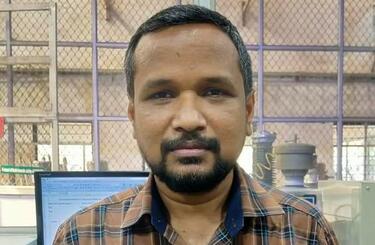
Lunchtime learning with an auditor

There are lessons to be learned during an audit, outside of the formal process. Abdul Majeed, Quality Assurance Manager at Pragati Electricals Pvt. Ltd in India, makes the case for learning over lunch.
I have to admit that one of the main things I miss since the move to remote auditing is having lunch with the auditor.
With many audits now conducted online, the experience of the auditing process itself has changed. Remote audit has brought us a lot of benefits, but I think it has taken many away as well.
As a quality assurance manager of a manufacturing company, I have to audit our suppliers, as well as facing lots of audits myself. As an auditee, I have learned a lot from the first-hand experiences of auditors, who are all experienced and senior people.
Informal learning
With face-to-face audits, once the first half is completed, you and the auditor go to lunch together and, during that time, discuss any doubts that may have come up in the morning session. Whenever I have had issues, I have asked questions of the auditor and learned from what they tell me of their experiences.
In the more informal setting of a lunch break, auditors can offer ideas for improvement in an organisation, drawing on their own varied experience.
However, during a remote audit that is difficult because time is limited. If you have any queries, it is not so easy to ask them; during a face-to-face audit, the auditor can explain lot of things, using examples drawn from their own experience.
In the more informal setting of a lunch break, auditors can offer ideas for improvement in an organisation, drawing on their own varied experience. As people, they want to teach, transferring their knowledge to the next generation. These lunchtime discussions with auditors have taught me lot.
For example, during one of our ISO 9001:2015 Quality management systems audits, I learned how the space in a laboratory could be used more effectively for the fast movement and testing of samples. This led us to streamline our own space to get speedier results.
During one of our laboratory audits, as per the ISO/IEC 17025:2017 General requirements for the competence of testing and calibration laboratories standard, the standard was being revised and I knew I had to alter our manual accordingly. During a lunchtime conversation with the auditor, they gave me an idea of the structure of the standard, which helped me to understand it more easily and I learned how best to make the necessary revisions.
In another case, every time certain tests were conducted, forms had to be collected from the production or marketing departments and then reviewed. During a discussion with the auditor, I asked how we could streamline this process. I discovered that we could develop an annual contract with the production and marketing departments, as they are internal customers, stating that we knew the specification of the standard products being tested. This meant there was no need for us to check every time tests were conducted as the specifications remained the same.
During another such discussion between audit sessions, I learned of more risks, other than those I had identified, relating to our laboratory work and sample testing. Not only this, but the auditor advised me how they could be mitigated.
Learning opportunities
During a remote audit, it is difficult to have these more informal conversations because time is limited. Another drawback is that junior members of the team may not be present and will miss out on valuable learning experiences. During a face-to-face audit, younger colleagues are much more likely to open up and ask a lot of questions of the auditors, and will also offer their own opinions, which might otherwise not be heard.
Auditors can call on their experience of auditing organisations of all sizes, as well as many companies similar to our own. I still refer to the auditors whenever I have doubts about understanding the ISO standards.
An audit is a costly process and so it must be done effectively; it must benefit the whole organisation as well as the individual being audited. Anything learned from the audit process will help, whether those teachings come from a formal or informal conversation.
Is remote auditing the ‘new norm’?